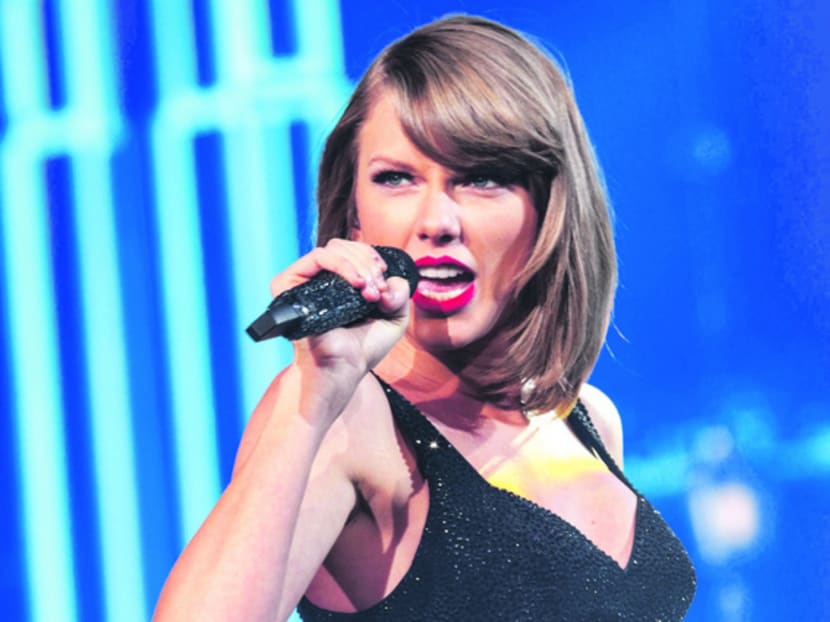What are the Grammys trying to say?
LOS ANGELES — With Kendrick Lamar and Taylor Swift, the Recording Academy has a chance to honour two of its standout artists in the prime of their careers. It’s hardly a given for the Grammys, which so frequently have played catch-up with era-defining acts it never managed to understand.

Will Taylor Swift’s cheeky lyrical skewering of her own tabloid image win her a Grammy? Photo: Reuters
LOS ANGELES — With Kendrick Lamar and Taylor Swift, the Recording Academy has a chance to honour two of its standout artists in the prime of their careers. It’s hardly a given for the Grammys, which so frequently have played catch-up with era-defining acts it never managed to understand.
But at a time of daggers-out political discourse and ever-louder debate over ethnic representation in entertainment — particularly when that representation extends to award shows — it’s hard to miss the stark differences between the two headliners: A white, blond woman whose music is shorn of any explicit political edge versus a black man whose newest music wears its jagged edges as badges of pride.
In the Song Of The Year category, Swift’s cheeky lyrical skewering of her own tabloid image will face off against a Lamar song heavy on references to the Bible, police brutality and slavery reparations.
Much has been written about the increasing hesitance of white pop stars to engage politically, with the brunt of activist music-making falling increasingly to hip-hop and R&B. But it presents Grammy voters with an essential dilemma: What do they want to represent excellence in their industry? Do they value boundary-pushing audacity? Or, in an era of continuing uncertainty over the future of commercial music, is Swift’s well-oiled machine too big to fail? Would ignoring 1989 in 2016 be like ignoring Michael Jackson’s Thriller in 1984? And would ignoring To Pimp A Butterfly now be like ignoring Marvin Gaye’s What’s Going On in 1972?
Grammy voters did ignore What’s Going On — Gaye didn’t win his first Grammy until more than a decade later — while Thriller cleaned up with a then-record-setting eight statuettes. The last time any of the major categories saw a winner that could make even a remote claim to political relevance was in 2007, with Record, Song and Album Of The Year wins for the Dixie Chicks’ belated response to Bush-era blacklisting.
Beyond that, outright political statements only tend to win major Grammys when cloaked in reassuring platitudes (U2’s Walk On, Phil Collins’ Another Day In Paradise) if not outright celebrity charity extravaganzas (USA For Africa’s We Are The World, George Harrison and Friends’ Concert For Bangladesh). Real boat-rockers have always fallen outside the Academy’s purview.
It’s easy to see far fewer grand statements, though no less central to the present-day state of music-making, in the other nominations. The Weeknd for example, with seven nominations, including Album and Record Of The Year, offers a uniquely modern take on R&B, his stardom established through free mixtapes long before he released a proper album.
Perhaps after years of falling into seeming irrelevance, the Grammys are once again demanding to be taken seriously. REUTERS





